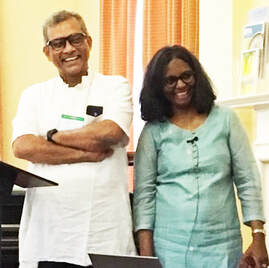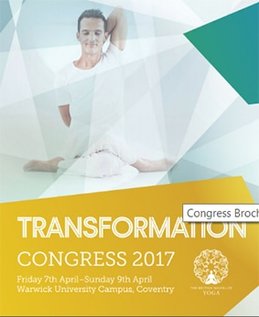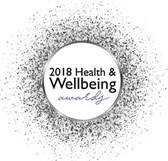Yoga is a set of practices but also, it is an area of study. The practices that we embody - the movements and postures, the breath and the meditative supports - can be wonderful to simply experience and do. No prior knowledge needed. But as your experience and understanding develops the richer it becomes, As an adjunct to the practices is the understanding, the context and the wider practices of yoga, which are rooted in a rich, broad, deep and ancient tradition. Not something you get to grips with in a group class generally (try one of my Bristol-based yoga workshops or Foundation Courses to find out more about this).
The Association of Yoga Studies (AYS) of which I'm a teaching member, is a viniyoga community that meets every year and comes together for a weekend of wonderful yoga workshops. This weekend just past was our annual convention with an inspiring theme on Yoga and Music led by Ravi Shankar and Sheela Shankar from India. They are both long-time yoga scholars trained directly by Desikachar and Sheela is an accomplished classical Indian singer. They shared the most beautiful and subtle approach to yoga practice through sound, song, chant and ancient Vedic poetry. Sheela delightfully performed songs for us and then led us skillfully in ancient chanting practices. While Ravi gave us eloquent context and history around the chants that we practiced. As always with the teaching conventions, I've come away inspired to explore these subtle practices in my personal practice and feel re-rooted in the tradition of yoga. It is such a privilege to be welcomed into this warm and generous community all brought together by the legacy of the humble, honest and rigorous teachings of TKV Desikachar. What I love about the teachings in this weekend's community, is that your never more than a breath away from a reference to the Yoga Sutras or the Vedas. The ancient traditions are maintained with a thread of understanding that is brilliantly woven through the workshops and brought to life through the teacher. The interpretation of yoga hasn't been recycled so many times without reference to the original teachings, that it is barely recognisable as yoga at all (as is common in many modern yoga teaching approaches). Refreshing, inspiring, grounding and beautiful. Chanting sublimely embodies a timelessness that is hard to find in other yoga practices. The chanting of a song that was written millennia ago, chanted to the same clear, strict rules which means it sounded the same then as it does now (if your teacher is as skilled as Sheela Shankar) bringing you to the exact same point as the people who chanted it before you, The sounds, the breath and focus required to maintain the ability to chant in Sanskrit, the acute listening and heightened senses, the connection to that which is timeless, And the awareness that of course life hasn't changed that much. The outward appearance and experience is unrecognisable, but our internal experience is still on the same path and these teachings which were so valuable then, are still available to help make life and living better. Love it!!
0 Comments
All forms of practice have their place at different times in life, and finding what suits you at is a very personal decision. The adaptable nature of viniyoga means it changes with you as your life changes, rather than requiring that you strive to sustain the same standardised forms of practice. Viniyoga is sustainable and supportive as you deepen your yoga practice over the years.
The British Wheel of Yoga is an organisation that offers yoga teacher training and accreditation, and a good standard of teacher training. It is the national governing body for yoga and the largest yoga membership organisation in the country. It ensures a minimum standard of teacher training so that the teacher is experienced enough and knowledgeable enough to safely run a group yoga class for the wide range of participants that each class attracts. Many teacher training courses these days are available to take as 1-6 month intensives however the British Wheel still maintains that 2-years is the minimum time period to fully explore, train and prepare to become a yoga teacher. Part of the yoga teachers job is to guide participants to move beyond their familiar physical and mental comfort zone and to do this safely is key to good teaching. They also require annual continual professional development have a good quarterly magazine. Anyway, I'm looking forward to teaching at the annual yoga teacher conference and hope to see you there! See Clara's group yoga class schedule > The Association for Yoga Studies (AYS) had their annual conference this weekend which was brilliantly inspirational. About 100 yoga teachers got together to share ideas, take workshops on everything from 'yoga breathing for pain relief during labour' to exploring faith or confidence through yoga. It was a great chance to discuss ways of teaching some of yoga's timeless principles. Ranju Roy and Dave Charlton were the plenary speakers focusing on Pajanjali's teachings in the Yoga Sutras about awareness, how yoga practice can effect our very being, effecting us potentially in quite profound ways, and also exploring how we see the world once we allow our yoga practice to deepen. Inspiring stuff.
Beyond the brilliant sessions from the weekend, a lasting memory is the Saturday night entertainment where we were led in a rendition of a funny song where we all joined in the chorus 'oh it all makes sense when your lying on the mat'. Funny but true... yoga helps us feel good on the mat, but the effects of yoga practice can be much longer lasting and helpful day to day - sometimes! |
More blog articles >Categories
All
Archives
July 2024
|
|
Bristol YogaSpace Ltd
Princes Place, Bishopston Just off Gloucester Road Bristol BS7 8NP |
|




 RSS Feed
RSS Feed

